In 1990, well over 30 years ago, the beautiful orange-fringed loricariid catfish L76 was introduced in the DATZ. Like L99, which was introduced in 1992 and is currently only seen as a color variant of L76, it originates from the Brazilian state of Pará, more precisely from the Rio do Pará. There are three forms of orange-fringed plecos among the L-catfish, in addition to L76 and L99 there is also L265 (Rio Tajajós and its tributary Rio Jamanxin, Brazil). The locations of all three L-numbers are therefore within the state of Pará. L265 also received the LDA number 84 after the assignment of an L number. All orange-fringed loricariids have in common that the otherwise largely unmarked dorsal and caudal fins have an orange-colored fringe. Individually, the basic body pattern can be quite different, hence the various L and LDA numbers. However, you can always recognize a pattern of four broad, dark bars on the flanks. In 2005, an orange-fringed loricariid catfish from the Rupununi River in Guyana, which looks extremely similar to L265/LDA84, was scientifically described as Peckoltia cavatica. Unfortunately, no scientist has yet compared the L-numbers with P. cavatica, so that it is uncertain whether all orange-fringed loricariids belong to just one species (P. cavatica) or represent different taxonomic units.
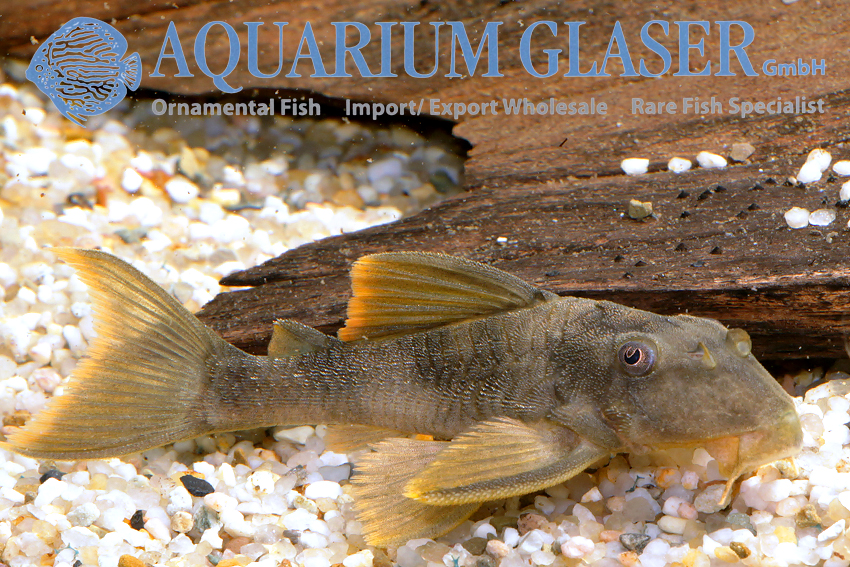
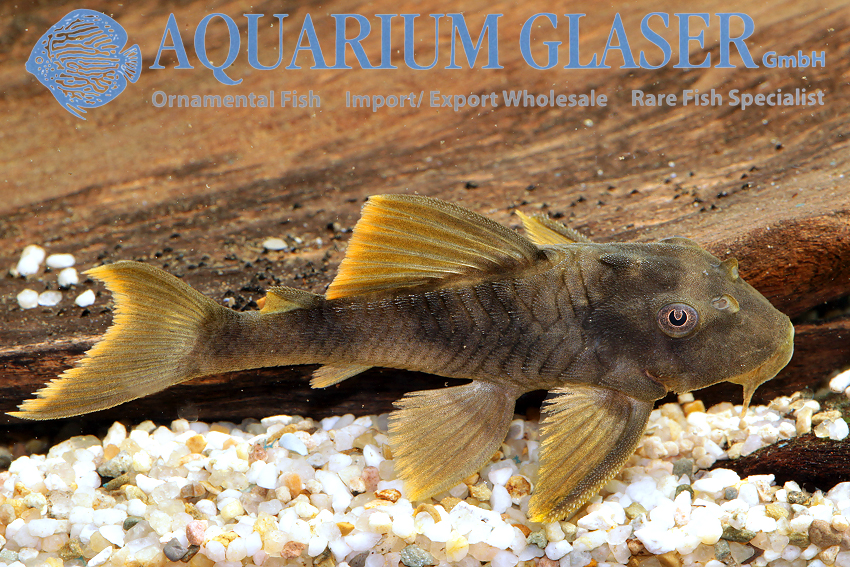
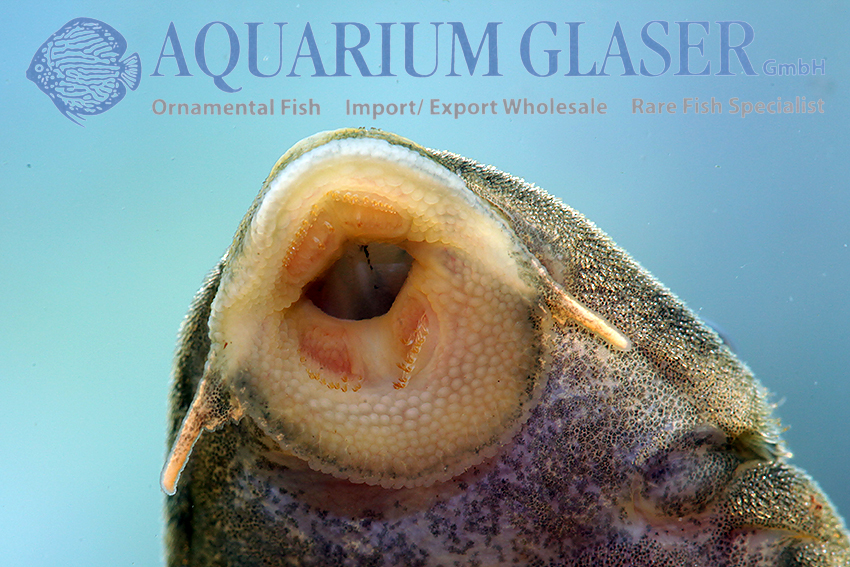
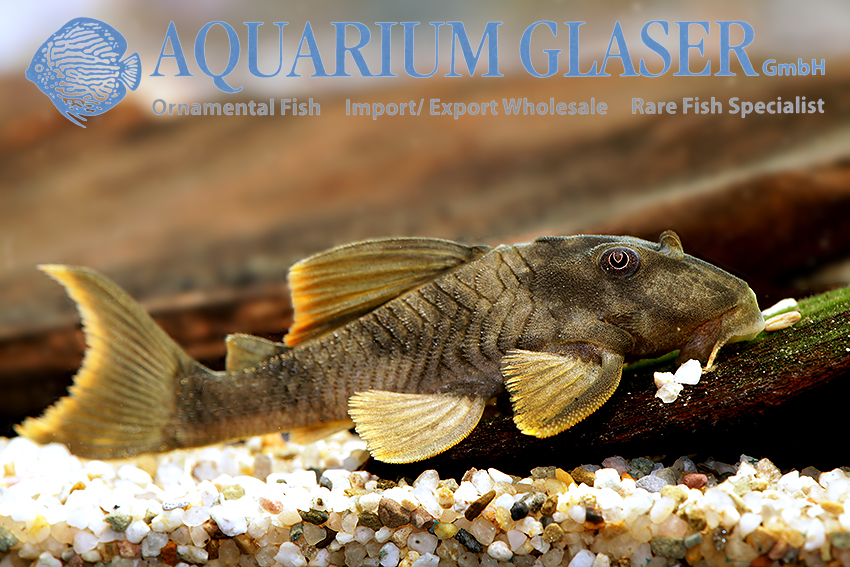
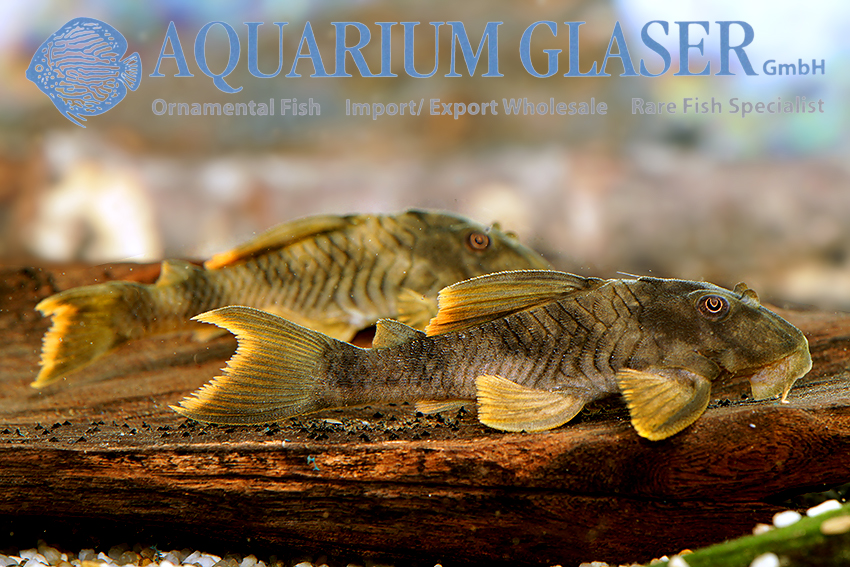
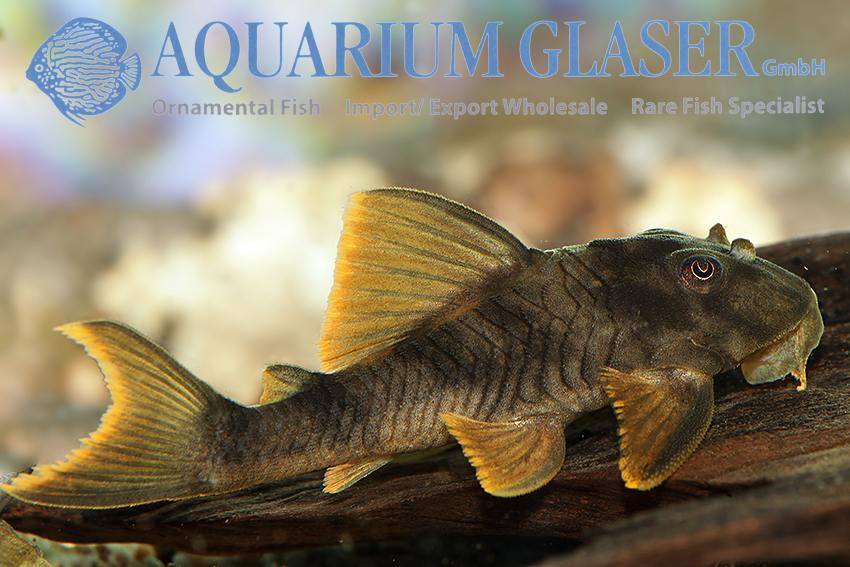
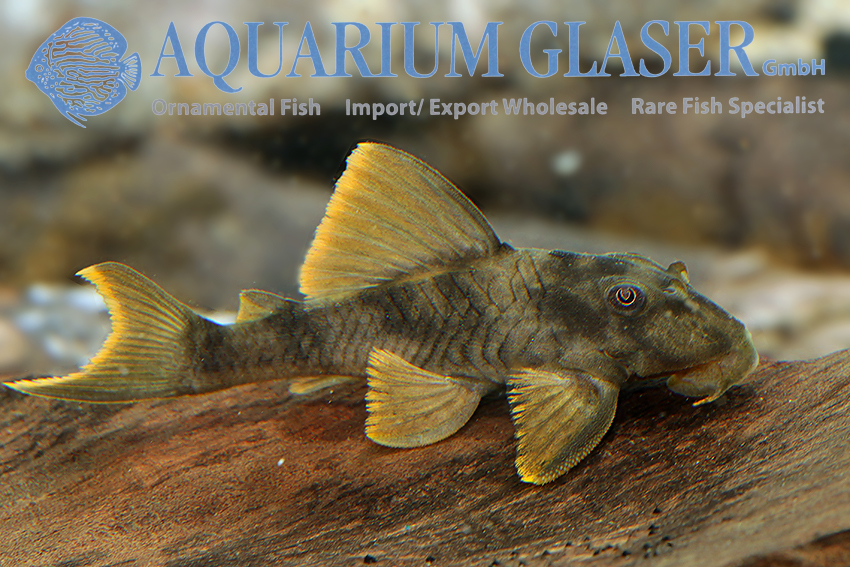
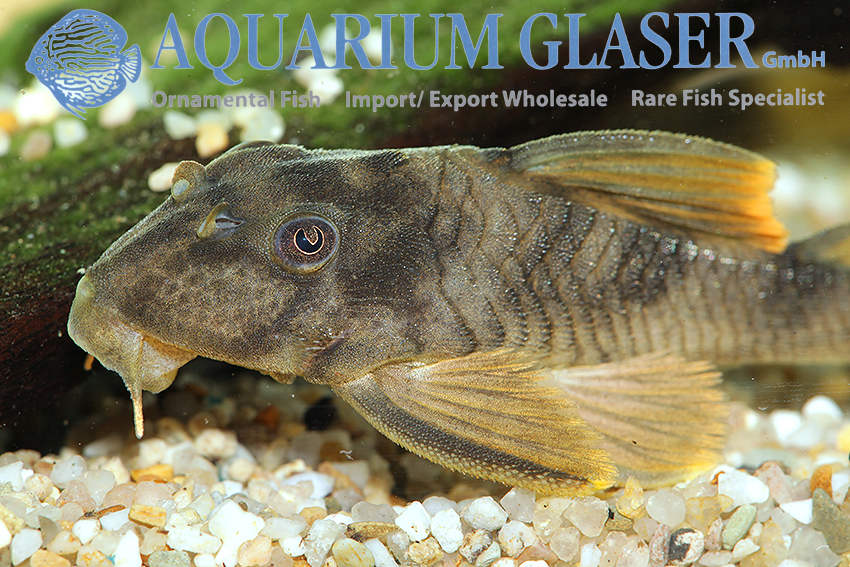
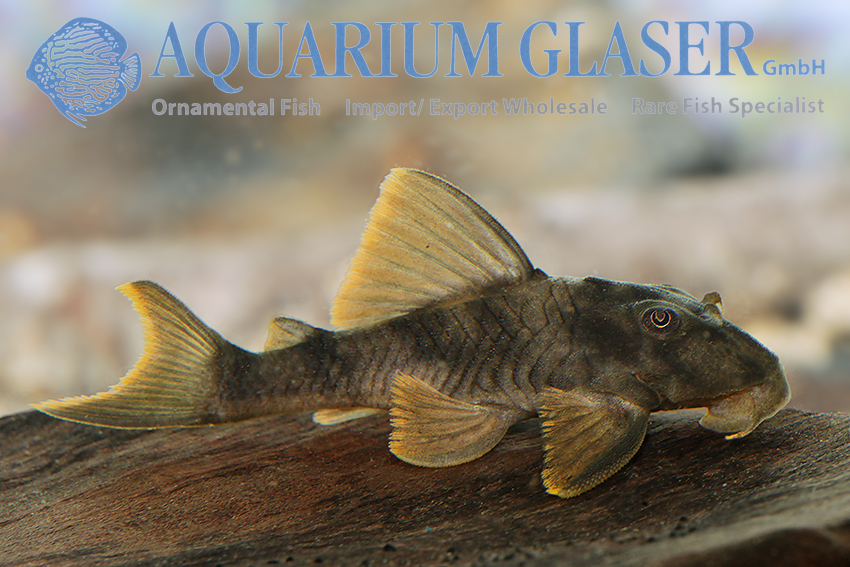
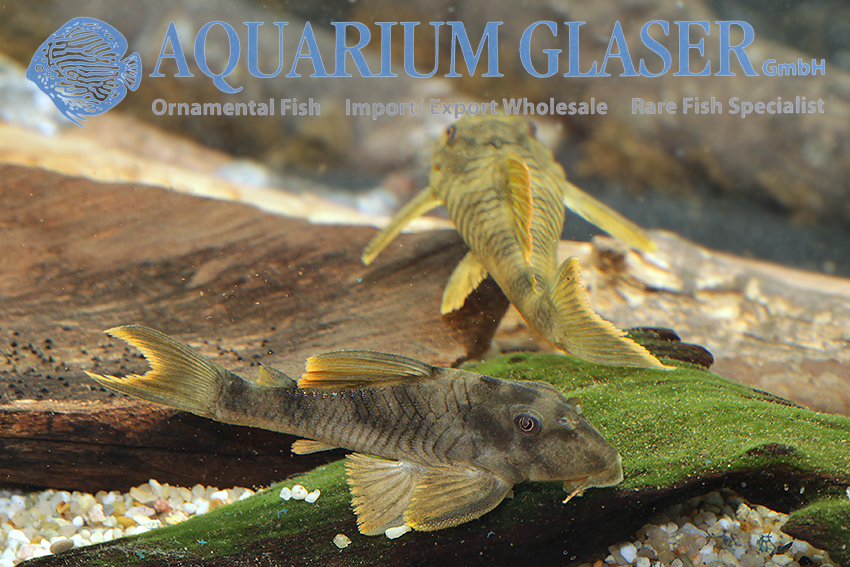
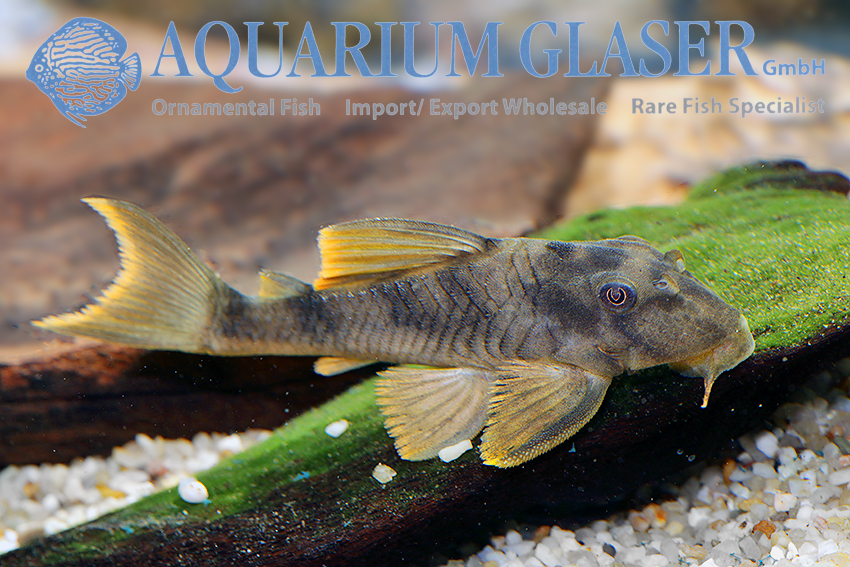
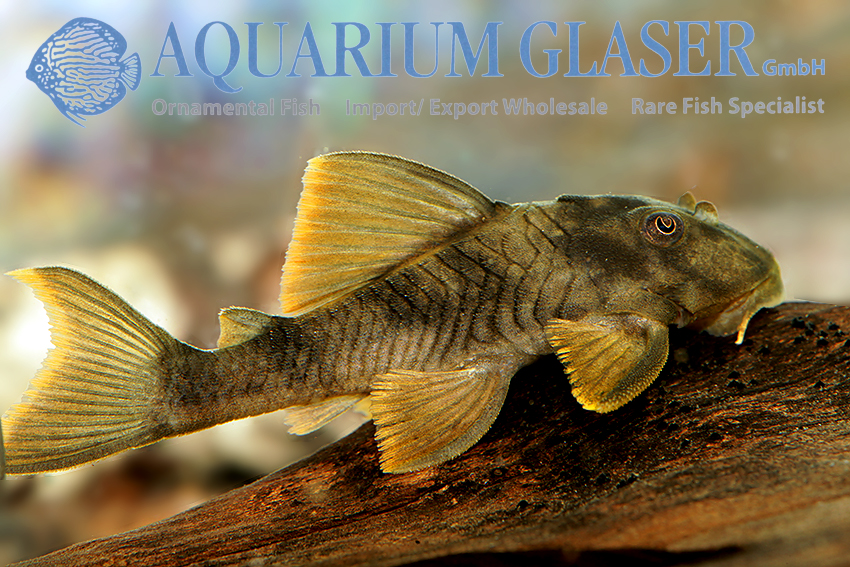
With a total length of 12-15 cm, these omnivores belong to the medium-sized loricariid catfishes. They are mainly active at dusk and at night, but are hardly shy after acclimatization and are often visible during the day. As they are peaceful animals, they can usually be kept well in groups. Orange-fringed plecos have been bred in Germany and Scandinavia for many years, although they are mostly marketed locally. It is mainly wild collected specimens that are sold wholesale, as in this case. The males develop dense bristles on the caudal peduncle as soon as they are sexually mature. These Peckoltia are typical cave breeders with a father family; if the catfish are kept in a species tank, i.e. without other fish species, the juveniles usually grow up without any problems, even in the presence of the adults.
For our customers: L76 have code 26480-L 076-2 on our stock list. Please note that we only supply the wholesale trade.
Text & photos: Frank Schäfer




